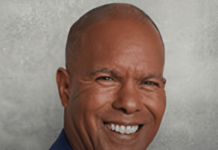
*Director Liz Garbus paints a balanced portrait of the legendary Nina Simone in Netflix’s first commissioned documentary, What Happened, Miss Simone?, including the emotional account from the singer’s only daughter, Lisa, detailing the intense physical abuse she suffered at the hands of her iconic mother, according to The Hollywood Reporter.

Details of the abuse, which surfaced during filming of the doc (out June 26), came as a surprise to the accomplished documentarian who previously directed “There’s Something Wrong With Aunt Diane,” “Bobby Fischer Against the World” and “Love, Marilyn.”
“The fact that Lisa was abused by Nina and by her father was not something I had known, but the first time I met Lisa I felt it,” says Garbus. “I don’t know how many of us could reveal that and not ask for editorial control. [But] without acknowledging the tough spots, how could you really acknowledge the full genius of who she was?”

Below, excerpts of Garbus’s interview from The Hollywood Reporter:
What has it been like to field responses since the film debuted earlier this year?
We debuted the film at Sundance and John Legend played there that night, which was such a beautiful tribute and homage. Then we’ve had a wonderful festival run, going to Berlin and now we’re doing theatrical and, of course, leading up to Netflix on June 26 — it’s been amazing. There are so many people who have different Ninas that they relate to and they know. There’s the person who just loves to play her music when they have people over for dinner because she’s cool and has a cache and sounds nice. Then there’s people for whom she’s a feminist icon and a civil rights icon and an inspiration. All these people bring different things to their understanding of Nina Simone, and she is of all those things.
You weave the music so beautifully throughout the film, linking the songs to her particular journey at that moment. How important was that to you?
I looked at the film like a nonfiction musical. It’s not going to be [a film] with people talking and then you hear little bits of music; the music helps us tell the story. I wanted songs to play long. I wanted the songs to help tell the story. So when she’s falling in love with the first big love of her life, it’s “I Love You Porgy,” and when she leaves him it’s “Don’t Smoke in Bed,” and when it’s her political awakening it’s “Gifted and Black.” The songs were always having that interaction with the narrative.
You worked with her estate. How did it affect your process?
Yeah, I mean, I totally understand that question, and the beauty of the project was that it didn’t change anything about the film. I worked both with the estate and Nina’s daughter, who was involved at the get-go. Very early on it was clear that I needed to have creative control and I wasn’t going to make a piece of somebody else’s version of Nina. I was going to find one myself as a filmmaker. They were really extraordinary and allowed me enough space. There was nothing that was vetoed, there was nothing that was off the [table], there was nothing like, “Oh, can you just change this?” They had extraordinary trust in me and let me find her for myself.
The daughter really broke my heart in the sections about the abuse she suffered at the hands of her mother. Were you surprised by that part of Nina’s story?
In Nina’s autobiography she talks about the violence with her husband, so I did know about that — but that Lisa also was abused by Nina and by her father was not something I had known. But the first time I met Lisa I felt it. She didn’t say it right away, but I could see how much that violence and that history about her mother, and the way her mother and father interacted, that there was always something else that also happened. I’m so honored Lisa trusted me.
How do you think that aspect of her story affects her legacy?
Somebody once said that this is a tough-love portrait. There’s a danger to that, right? She has so many fans and her music is so extraordinary that you don’t want to tarnish what’s there and you want to be careful that you don’t deprive people of that joy. But at the same time everybody knows that when they’re watching Nina there’s extraordinary pain, and you may not be able to put your finger on it but you know she’s channeling something that can be very dark and that’s kind of why you love her, because you feel like she’s experienced something that you might have experienced in your darkest hours. To paint a portrait of Nina without acknowledging those craggy parts of the beautiful diamond that she is, that she was, would be a disservice to Nina fans.
I loved when Nina talked about freedom and how freedom translates to having no fear. When do you feel most free?
Isn’t that so well put? That applies to everything. That applies to coming out as a transgender person, it applies to racism, it applies to humanity as a whole, right? My mantra was to be as honest as I could with everything I had. I had so much Nina. I had so much audio, and I wanted to let it blossom, even in contradictory moments like her love and hatred for the piano. It was both her burden and her joy. All those oppositions. So for me, no fear was allowing those oppositions to play against each other and to trust my audience to understand.
I also loved when she said that you can’t be an artist and not reflect the times. Is there an artist around today whom you admire that you think reflects the times or do you think that’s something that even exists today?
I don’t think it exists today in the form it existed then, but I think it’s beginning to. I think in the past year we’ve seen a real resurgence of organization of the civil rights movement sparked by these horrible incidents of the murders of unarmed black men, and artists today are picking up that mantle in a way. Lauryn Hill’s doing it, Common’s doing it, John Legend is doing it, Usher is doing it — you know there are so many artists that there are people who are ready to stand on their shoulders and kind of use the energy of today’s movement to entertain and inspire people.
This isn’t the only Nina Simone movie out in the world. The casting of Zoe Saldana in the Nina biopic was quite controversial. What do you have to say about that?
I haven’t seen a stitch of the other film or a script or anything. I know that, of course, the casting of Zoe was very controversial for a lot of Nina fans and for the family as well. I don’t have a horse in that race. If it’s a movie that celebrates her genius and legacy and brings that joy to her fans and the people who love her then it’s great for us. If it takes away from that then it’s not great.
This is the first documentary that Netflix financed. Do you have plans to do another project with them?
Let’s ask them. (Laughs.) No I don’t know what comes next. I’m not sure yet. I’m working on some documentary projects and I’m working on a scripted feature.
Your first one?
I don’t think I’m supposed to say anything about that, but yes. Nina’s a tough act to follow. It’s gotta be good.
Watch the trailer of “What Happened Miss Simone?” below:
We Publish News 24/7. Don’t Miss A Story. Click HERE to SUBSCRIBE to Our Newsletter Now!





